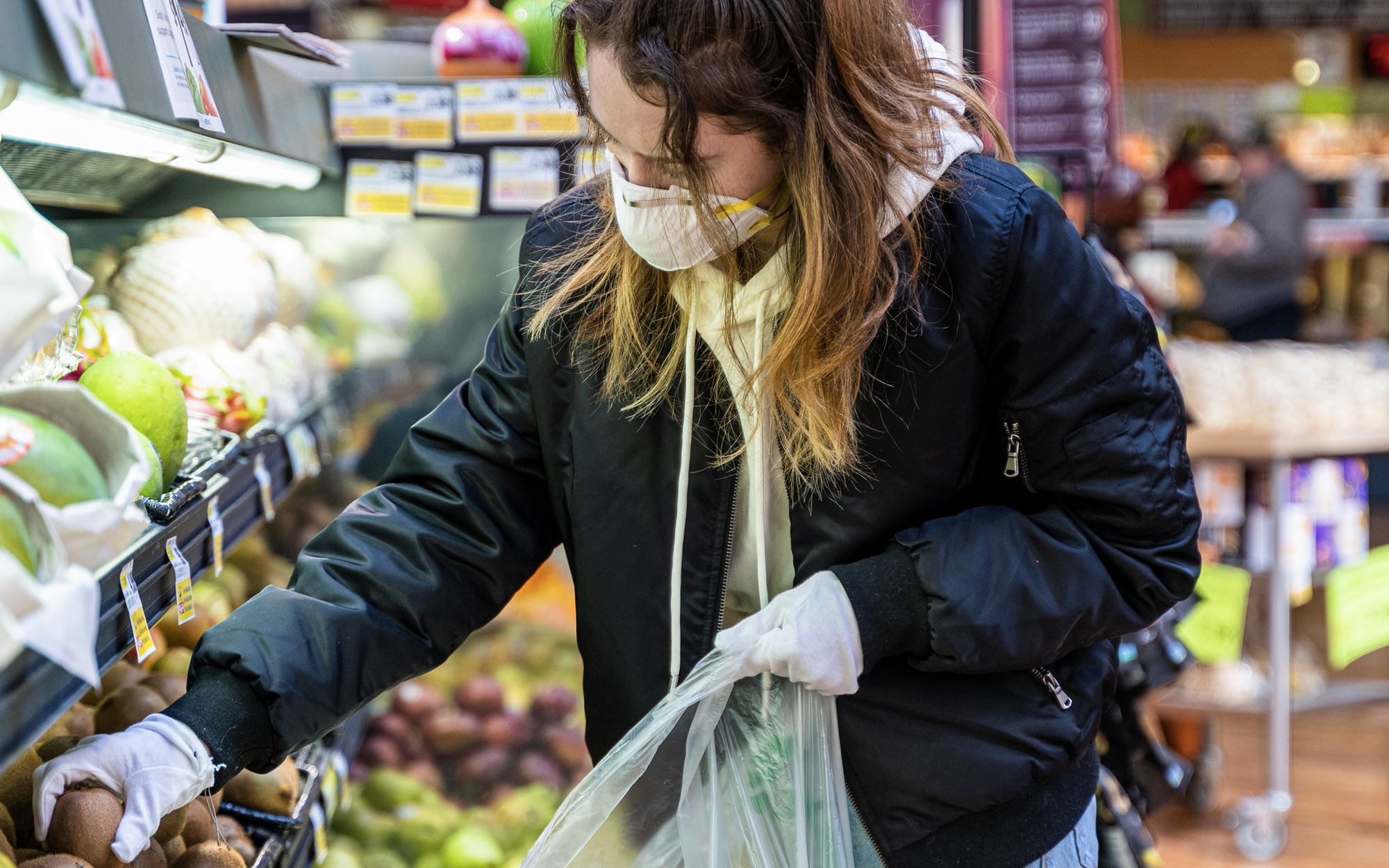Don’t fall into the trap of eating unhealthy during this pandemic. Eating healthy foods like fresh and frozen fruits, vegetables, whole grains, beans, and nuts will provide you with antioxidants that keep your immune system healthy. People have different relationships with food and stress can exacerbate that. Are you eating more comfort, processed foods? Forgetting to eat altogether?

Quad City Dietitian, Jeni Tackett, says sticking to a regular meal schedule and eating healthy will help you get through the pandemic.
QC Rock Valley Physical Therapy Dietitian, Jeni Tackett, says now more than ever, create a sense of normalcy by eating on a regular schedule and stick to the basic, whole, healthy food choices for optimum health.
Tips for a pandemic menu:
- Stock up on frozen fruits and vegetables. Frozen vegetables with no sauces added are as healthy if not healthier than fresh vegetables! Frozen fruits can be used for smoothies, added to oatmeal, or included in yogurt parfaits. Make sure you have a vegetable or fruit at every meal!
- Choose low sodium canned vegetables: Look for low sodium or reduced-sodium beans and vegetables. You can also pour the vegetables or beans into a colander and rinse for 2-3 minutes to remove more sodium.
- Choose canned fruits with no added sugar: Look for canned fruits “in their own juice” so that the fruit included added sugars.
- Choose fresh fruits and vegetables with a longer shelf life: Did you know that apples can last up to a month in your refrigerator? If you buy pears when they are firm then they can last 1-3 months in your refrigerator. Citrus fruit like oranges and grapefruit last 2-6 weeks in the refrigerator. Hearty vegetables include sweet and white potatoes, onions, garlic, carrots, celery, and broccoli. Make sure to store fresh fruits and vegetables properly to get the most out of your purchase!
- Choose higher fiber grains: Focus on oatmeal, whole wheat pasta, wild rice, brown rice, and whole-wheat bread. The good news is that these are most of the grains still on the grocery store shelves! Try not to rely on boxed meals like macaroni and cheese or rice meals – instead make pasta or rice and season with herbs and spices, accompanied with steamed frozen veggies and lean protein.
- Choose proteins wisely: For plant protein low sodium canned beans (rinsed) or dried beans are a cheap, shelf-stable choice. For meats, choose canned or frozen options. Canned chicken, tuna, and salmon are good choices for lean protein. Frozen chicken, seafood, and shrimp are options that will last. If you buy fresh meats, freeze meat until you are ready to prepare.
Think ahead and make wise choices when your grocery shop – online or in the store. You can reduce your trips to the store by purchasing and correctly storing shelf-stable foods that are still healthy for you and your family.

Quad City Dietitian, Jeni Tackett, says sticking to a regular meal schedule and eating healthy will help you get through the pandemic.
- Stock up on frozen fruits and vegetables. Frozen vegetables with no sauces added are as healthy if not healthier than fresh vegetables! Frozen fruits can be used for smoothies, added to oatmeal, or included in yogurt parfaits. Make sure you have a vegetable or fruit at every meal!
- Choose low sodium canned vegetables: Look for low sodium or reduced-sodium beans and vegetables. You can also pour the vegetables or beans into a colander and rinse for 2-3 minutes to remove more sodium.
- Choose canned fruits with no added sugar: Look for canned fruits “in their own juice” so that the fruit included added sugars.
- Choose fresh fruits and vegetables with a longer shelf life: Did you know that apples can last up to a month in your refrigerator? If you buy pears when they are firm then they can last 1-3 months in your refrigerator. Citrus fruit like oranges and grapefruit last 2-6 weeks in the refrigerator. Hearty vegetables include sweet and white potatoes, onions, garlic, carrots, celery, and broccoli. Make sure to store fresh fruits and vegetables properly to get the most out of your purchase!
- Choose higher fiber grains: Focus on oatmeal, whole wheat pasta, wild rice, brown rice, and whole-wheat bread. The good news is that these are most of the grains still on the grocery store shelves! Try not to rely on boxed meals like macaroni and cheese or rice meals – instead make pasta or rice and season with herbs and spices, accompanied with steamed frozen veggies and lean protein.
- Choose proteins wisely: For plant protein low sodium canned beans (rinsed) or dried beans are a cheap, shelf-stable choice. For meats, choose canned or frozen options. Canned chicken, tuna, and salmon are good choices for lean protein. Frozen chicken, seafood, and shrimp are options that will last. If you buy fresh meats, freeze meat until you are ready to prepare.

Jeni Tackett
Nutritionist Blogger
Jeni is a registered and licensed dietitian for Rock Valley Health. Jeni counsels her clients on weight loss and nutrition.





Recent Comments